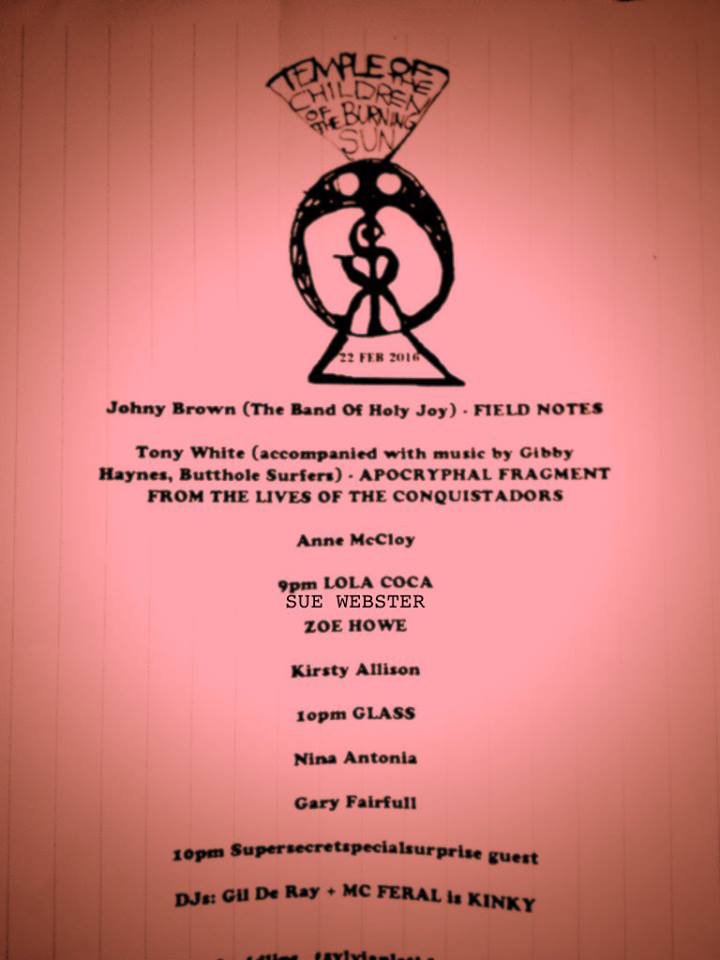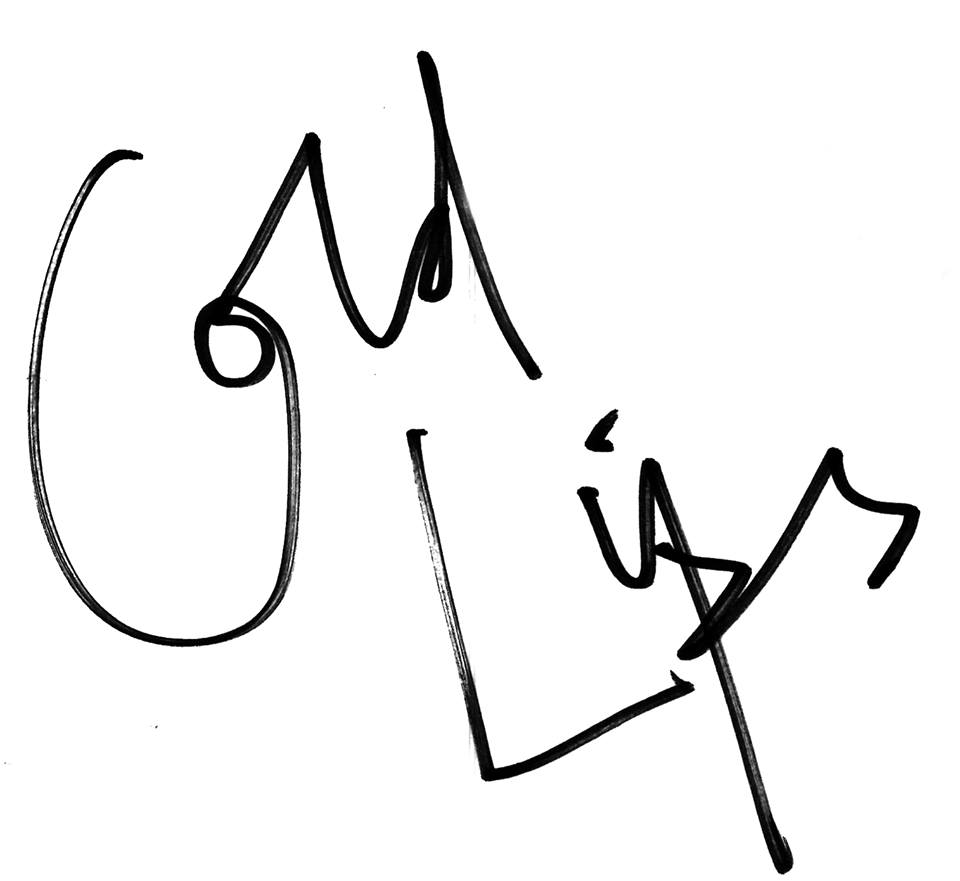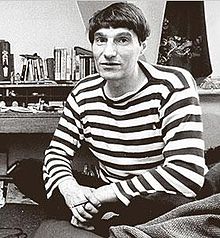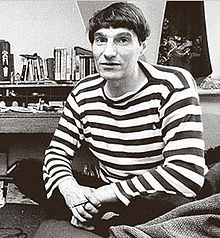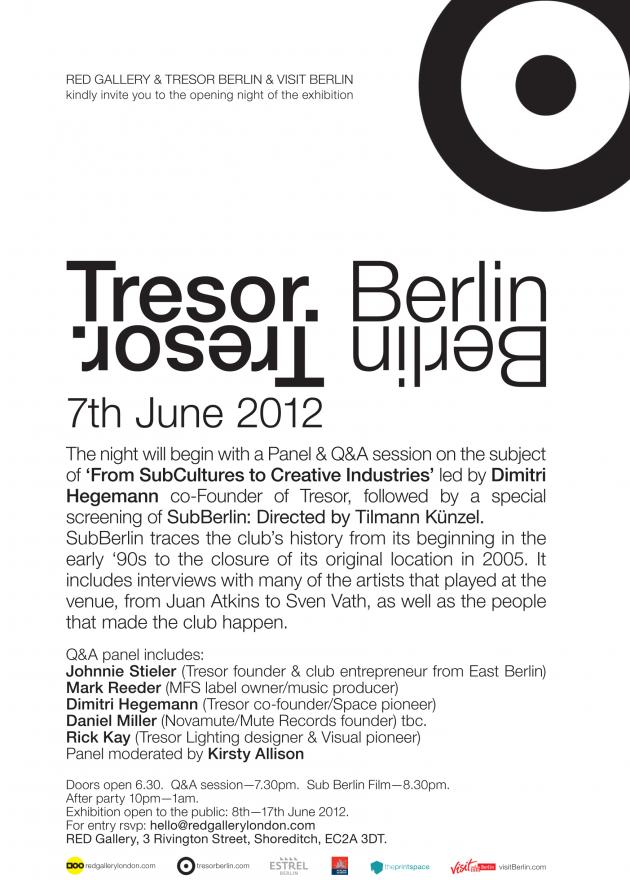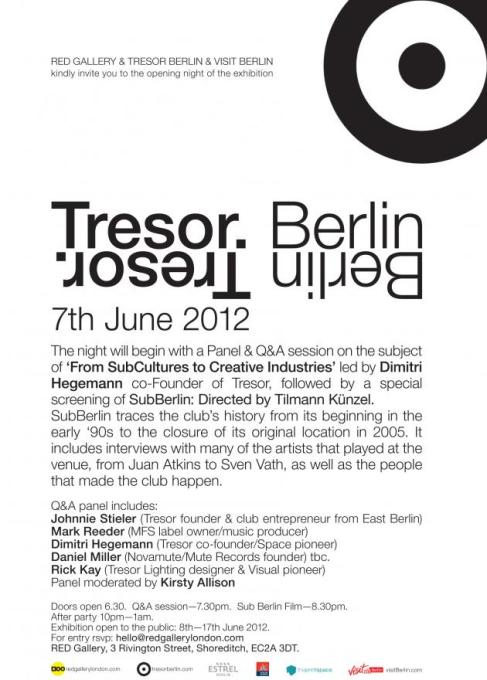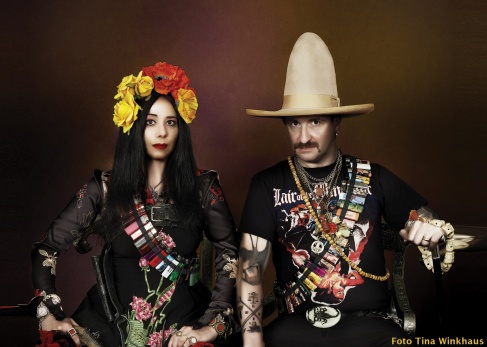A Revolutionary Proposal: Invisible Insurrection of a Million Minds
Alexander Trocchi
Published as “Technique du coupe du monde,” Internationale Situationniste #8 (January 1963)
<http://www.notbored.org/invisible.html> [27th March, 2013]
Photograph by Marvin Lichtner, 1967.
And if there is still one hellish, truly accursed thing in our time, it is our artistic dallying with forms, instead of being like victims burnt at the stake, signalling through the flames. — Antonin Artaud, The Theatre and Its Double, 1958
Revolt is understandably unpopular. As soon as it is defined, it has provoked the measures for its confinement. The prudent man will avoid his definition which is in effect his death-sentence. Besides, it is a limit.
We are concerned not with the coup d’etat [seizure of the state] of Trotsky and Lenin, but with the coup du monde [seizure of the world], a transition of necessity more complex, more diffuse than the other, and so more gradual, less spectacular. Our methods will vary with the empirical facts pertaining here and now, there and then.
Political revolt is and must be ineffectual precisely because it must come to grips at the prevailing level of political process. Beyond the backwaters of civilization it is an anarchronism. Meanwhile, with the world at the edge of extinction, we cannot afford to wait for the mass. Nor to brawl with it.
The coup du monde must be in the broad sense cultural. With his thousand technicians, Trotsky seized the viaducts and the bridges and the telephone exchanges and the power stations. The police, victims of convention, contributed to his brilliant enterprise by guarding the old men in the Kremlin. The latter hadn’t the elasticity of mind to grasp that their own presence there at the traditional seat of government was irrelevant. History outflanked them. Trotsky had the railway stations and the powerhouses, and the “government” was effectively locked out of history by its own guards.
So the cultural revolt must seize the grids of expression and the powerhouses of the mind. Intelligence must become self-conscious, realise its own power, and, on a global scale, transcending functions that are no longer appropriate, dare to exercise it. History will not overthrow national governments; it will outflank them. The cultural revolt is the necessary underpinning, the passionate substructure of a new order of things.
What is to be seized has no physical dimensions nor relevant temporal color. It is not an arsenal, nor a capital city, nor an island, nor an isthmus visible from a peak in Darien. Finally, it is all these things too, of course, all that there is, but only by the way, and inevitably. What is to be seized — and I address that one million (say) here and there who are capable of perceiving at once just what it is that I am about, a million potential “technicians” — is ourselves. What must occur, now, today, tomorrow, in those widely dispersed but vital centres of experience, is a revelation. At the present time, in what is often thought of as an age of the mass, we tend to fall into the habit of regarding history and evolution as something which goes relentlessly on, quite without our control. The individual has a profound sense of his own impotence as he realizes the immensity of the forces involved. We, the creative ones everywhere, must discard this paralytic posture and seize control of the human process by assuming control of ourselves. We must reject the conventional fiction of “unchanging human nature.” There is in fact no such permanence anywhere. There is only becoming. [Author’s note: The prise de pouvoir (seizure of power) by an avant garde is obviously only an early stage in a larger, more universal movement, and it must not be forgotten that our group of originators “ne pourra realiser son projet qu’en se supprimant . . . ne peut effectivement exister qu’en tant que parti se depasse lui-meme” (“will be able to achieve its goal only by suppressing itself . . . can really exist only as a party that transcends itself”).]
Organization, control, revolution: each of the million individuals to whom I speak will be wary of such concepts, will find it all but impossible with a quiet conscience to identify himself [sic] with any group whatsoever, no matter what it calls itself. That is how it should be. But it is at the same time the reason for the impotence of intelligence everywhere in the face of events, for which no one in particular can be said to be responsible, a yawning tide of bloody disasters, the natural outcome of that complex of processes, for the most part unconscious and uncontrolled, which constitute the history of man. Without organization, concerted action is impossible; the energy of individuals and small groups is dissipated in a hundred and one unconnected, little acts of protest . . . a manifesto here, a hunger strike there. Such protests, moreover, are commonly based on the assumption that social behaviour is intelligent: the hallmark of their futility. If change is to be purposive, men [sic] must somehow function together in the social situation. And it is our contention that there already exists a nucleus of men who, if they will set themselves gradually and tentatively to the task, are capable of imposing a new and seminal idea: the world waits for them to show their hand.
We have already rejected any idea of a frontal attack. Mind cannot withstand matter (brute force) in open battle. It is rather a question of perceiving clearly and without prejudice what are the forces that are at work in the world and out of whose interaction tomorrow must come to be; and then, calmly, without indignation, by a kind of mental ju-jitsu that is ours by virtue of intelligence, of modifying, correcting, polluting, deflecting, corrupting, eroding, outflanking . . . inspiring what we might call the invisible insurrection. It will come on the mass of men, if it comes at all, not as something they have voted for, fought for, but like the changing season; they will find themselves in and stimulated by the situation consciously at last to recreate it within and without as their own.
Clearly, there is in principle no problem of production in the modern world. The urgent problem of the future is that of distribution, which is presently (dis)ordered in terms of the economic system prevailing in this or that area. This problem on a global scale is an administrative one and will not finally be solved until existing political and economic rivalries are outgrown. Nevertheless, it is becoming widely recognized that distributive problems are most efficiently and economically handled on a global scale by an international organization like the United Nations (food, medicine, etc.) and this organization has already relieved the various national governments of some of their functions. No great imagination is required to see in this kind of transference the beginning of the end for the nation-state. We should at all times do everything in our power to speed up the process.
Meanwhile, our anonymous million can focus their attention on the problem of “leisure.” A great deal of what is pompously called “juvenile delinquency” is the inarticulate response of youth incapable of coming to terms with leisure. The violence associated with [juvenile delinquency] is a direct consequence of the alienation of man from himself [sic] brought about by the Industrial Revolution. Man has forgotten how to play. And if one thinks of the soulless tasks accorded each man in the industrial milieu, of the fact that education has become increasingly technological, and for the ordinary man no more than a means of fitting him for a “job,” one can hardly be surprised that man is lost. He is almost afraid of more leisure. He demands “overtime” and has a latent hostility towards automation. His creativity stunted, he is orientated outwards entirely. He has to be amused. The forms that dominate his working life are carried over into leisure, which becomes more and more mechanized; thus he is equipped with machines to contend with leisure that machines have accorded him. And to offset all this, to alleviate the psychological wear and tear of our technological age, there is, in a word, ENTERTAINMENT.
When our man [sic] after the day’s work comes twitching, tired, off the assembly-line into what are called without a shred of irony his “leisure hours,” with what is he confronted? In the bus on the way home he reads a newspaper that is identical to yesterday’s newspaper, in the sense that it is a reshake of identical elements . . . four murders, thirteen disasters, two revolutions, and “something approaching a rape” . . . which in turn is identical to the newspaper of the day before that . . . three murders, nineteen disasters, one counter-revolution, and something approaching an abomination . . . and unless he is a very exceptional man, one of our million potential technicians, the vicarious pleasure he derives from paddling in all this violence and disorder obscures from him the fact that there is nothing new in all this “news” and that his daily perusal of it leads not to a widening of consciousness, to a species of mental process that has more in common with [the] salivations of Pavlov’s dogs than with the subtleties of human intelligence.
Contemporary man expects to be entertained. His active participation is almost nonexistent. Art, whatever it is, is something of which it is sometimes even proud to flaunt an attitude of invincible ignorance. This sorry state of affairs is unconsciously sanctioned by the stubborn philistinism of our cultural institutions. Museums have approximately the same hours of business as churches, the same sanctimonious odors and silences, and a snobbish presumption in direct spiritual opposition to the vital men [sic] whose works are closeted there. What have those silent corridors to do with Rembrandt and the “no smoking” signs to do with Van Gogh? Beyond the museum, the man in the street is effectively cut off from art’s naturally tonic influence by the fashionable brokerage system which, incidentally, but of economic necessity, has more to do with the emergence and establishment of so-called “art-forms” than is generally realized. Art can have no existential significance for a civilization that draws a line between life and art, and collects artifacts like ancestral bones for reverence. Art must inform the living; we envisage a situation in which life is continually renewed by art, a situation imaginatively and passionately constructed to inspire each individual to respond creatively, to bring to whatever act a creative comportment. We envisage it. But it is we, now, who must create it. For it does not exist.
The actual situation could not be in sharper contrast. Art anaesthetizes the living; we witness a situation in which life is continually devitalized by art, a situation sensationally and venally misrepresented to inspire each individual to respond in a stoic and passive way, to bring to whatever act a banal and automatic consent. For the average man, dispirited, restless, with no power of concentration, a work of art to be noticed at all must compete at the level of spectacle. It must contain nothing that is in principle unfamiliar or surprising; the audience must be able easily and without reservation to identify with the protagonist, to plant itself firmly in the “driving-seat” of the emotional roller-coaster and switch over to remote control. What takes place is empathy at a very obvious level, blind and uncritical. To the best of my knowledge, it was Brecht who first drew attention to the danger of that method of acting which aims to provoke the state of empathy in an audience at the expense of judgment. It was to counter this promiscuous tendency on the part of the modern audience to identify that he formulated his “distance-theory” of acting, a method calculated to inspire a more active and critical kind of participation. Unfortunately, Brecht’s theory has had no impact whatsoever on popular entertainment. The zombies remain; the spectacle grows more spectacular. To adapt an epigram of [Guy Debord] a friend of mine: Si vous ne voulouns pas assister au spectacle de la fin du monde, il nous faut travailler a la fin du monde du spectacle [if you don’t want to assist in the spectacle of the end of the world, you must work toward ending the world of the spectacle] (Notes editoriales d’Internationale Situationniste, 3 Decembre, 1959. Freely adapted [by Trocchi] from the original.)
Such art as has claim to be called serious touches popular culture today only by way of the fashion industry and advertizing, and for many years it has been infected by the triviality attaching to those enterprises. For the rest, literature and art exist side by side with mechanized popular culture and, except in an occasional film here and there, have little effect upon it. Only in jazz, which retains the spontaneity and vitality deriving from its proximity to its beginnings, can we see an art which springs naturally out of a creative ambience. But already more adulterated forms tend to be confused with the authentic. In England, for example, we are confronted by the absurd craze for “trad”: a rehash of what went on in New Orleans in the early Twenties, simple, obvious, repetitious, overshadows almost completely the vital tradition of the post-Charlie Parker era.
For a long time now the best artists and fine minds everywhere have deplored the gulf that has come to exist between art and life. The same people have usually been in revolt during their youth and have been rendered harmless by “success” somewhere around middle age. The individual is powerless. It is inevitable. And the artist has a profound sense of his own impotence. He [sic] is frustrated, even confounded. As in the writings of Kafka, this fearful sense of alienation pervades his work. Certainly the most uncompromising attack on conventional culture was launched by Dada at the end of the First World War. But the usual defense-mechanisms were soon operating: the turds of “anti-art” were solemnly framed and hung alongside “The School of Athens”; Dada thereby underwent […] castration by card-index and was soon safely entombed in the histories as just another school of art. The fact is that while Tristan Tzara et al could point deftly to the chancre on the body politic, could turn the spotlight of satire on the hypocracies that had to be swept away, they produced no creative alternative to the existing order. What were we to do after we had painted a moustache on the Mona Lisa? Did we really wish Ghenghis Khan to stable his horses in the Louvre? And then?
In a recent essay [The Secret Reins, (Centre 42) Encounter No. 102, March, 1962], Arnold Wesker — concerned precisely with this gulf between art and popular culture, and with the possibility of reintegration — refers to the threatened strike of 1919 and to a speech of Lloyd George. The strike could have brought down the government. The Prime Minister said:
“You will defeat us. But if you do so, have you weighed the consequences? The strike will be in defiance of the government of the country and by its very success will precipitate a constitutional crisis of the first importance. For, if a force arises in the state which is stronger than the state itself, then it must be ready to take on the functions of the state. Gentlemen — have you considered, and if you have, are you ready?
The strikers were not ready. Mr. Wesker comments:
The crust has shifted a bit, a number of people have made fortunes out of the protest and somewhere a host of Lloyd Georges are grinning contentedly at the situation. . . . All protest is allowed and smiled upon because it is known that the force — economically and culturally — lies in the same dark and secure quarters, and this secret knowledge is the real despair of both artist and intellectual. We are paralyzed by this knowledge, we protest every so often but really the whole cultural scene — particularly on the Left — “is one of awe and ineffectuality.” I am certain that this was the secret knowledge that largely accounted for the decline of the cultural activities of the Thrties — no one really knew what to do with the philistines. They were omnipotent, friendly, and seductive. The germ was carried and passed on by the most unsuspected; and this same germ will cause, is beginning to cause, the decline of our new cultural upsurge unless . . . unless a new system is conceived whereby we who are concerned can take away, one by one, the secret reins.
Although I found Mr. Wesker’s essay in the end disappointing, it did confirm for me that in England as elsewhere there are groups of people who are actively concerned with the problem. As we have seen, the political-economic structure of western society is such that the gears of creative intelligence mesh with the gears of power in such a way that, not only is the former prohibited from ever initiating anything, it can only come into play at the behest of forces (vested interests) that are often in principle antipathetic towards it. Mr. Wesker’s “Centre 42” is a practical attempt to alter this relationship.
I should like to say at once that I have no fundamental quarrel with Mr. Wesker. My main criticism of his project (and I admit my knowledge of it is very hazy indeed) is that it is limited and national in character, and that this is reflected in his analysis of the historical background. He takes the 1956 production of Osborne’s Look Back in Anger, for example, to be the first landmark in “our new cultural upsurge.” A serious lack of historical perspective, the insularity of his view . . . these features are, I am afriad, indicative of a kind of church-bazaar philosophy which seems to underlie the whole project. Like handicrafts, art should not be expected to pay. Mr. Wesker calls for a tradition “that will not have to rely on financial success in order to continue.” And so he was led to seek the patronage of trade unions and has begun to organize a series of cultural festivals under their auspices. While I have nothing against such festivals, the urgency of Mr. Wesker’s original diagnosis led me to expect recommendations for action at a far more fundamental level. Certainly, such a programme will not carry us very far towards seizing what he so happily refers to as “the secret reins.” I do not think I am being overcautious in asserting that something far less pedestrian than an appeal to the public-spiritedness of this or that group will be the imperative of the vast change we have in mind.
Nevertheless, as one point in what remains an interesting essay, Mr. Wesker quotes Mr. Raymond Williams. Who Mr. Williams is and from what work the quotation is taken I am unfortunately ignorant. I only wonder how Mr. Wesker can quote the following and then go out and look for patronage.
The question is not who will patronize the arts, but what forms are possible in which artists will have control of their own means of expression, in such ways that they will have relation to a community rather than to a market or a patron.
Of course it would be dangerous to pretend to understand Mr. Williams on the basis of such a brief statement. I shall say simply that for myself and for my associates in Europe and America, the key phrase in the above sentence is: “artists will have control of their own means of expression.” When they achieve that control, their “relation to a community” will become a meaningful problem, that is, a problem amenable to formulation and solution at a creative and intelligent level. Thus we must concern ourselves forthwith with the question of how to seize and within the social fabric exercise that control. Our first move must be to eliminate the brokers.
At the beginning of these reflections, I said that our methods will vary with the empirical facts pertaining here and now, there and then. I was referring to the tentative, essentially tactical nature of our every act in relation to a given situation, and also to the international constitution of what we might call the new underground. Obviously, all our operations must be adapted to the society in which they take place. Methods used effectively in London might be suicidal or simply impracticable in Moscow or Peking. Always, the tactics are for here and how; never are they in the narrow sense political. Again, these reflections themselves must be regarded as an act of the new underground, a prescriptive document which, in so far as it refers for the most part to what is yet to happen, awaits baptism by fire.
How to begin? At a chosen moment in a vacant country house (mill, abbey, church or castle) not too far from the City of London, we shall foment a kind of cultural “jam session”: out of this will evolve the prototype of our spontaneous university.
The original building will stand deep within its own grounds, preferably on a river bank. It should be large enough for a pilot group (astronauts of inner space) to situate itself, orgasm and genius, and their tools and dream-machines and amazing apparatus and appurtenances; with outhouses for “workshops” large as could accommodate light industry; the entire site to allow for sponatneous architecture and eventual town planning. I underline the last because we cannot place too much emphasis on the fact that “l’art integral ne pourvait se realiser qu’au niveau de l’urbanisme” [integral art cannot be accomplished except on the level of urbanism] (Documents Situationnistes, Guy-Ernest Debord. At present, town planning is determined by and tends to reinforce conventional functions, conventional attitudes. You sleep here, eat there, work there, die there. A revolutionary architecture will take no account of functions to be transcended.) In the 1920s, Diaghilev, Picasso, Stravinski, and Nijinsky acted in concert to produce a ballet; surely it does not strain our credulity to imagine a far larger group of our contemporaries acting in concert to create a town. We envisage the whole as a vital laboratory for the creation (and evaluation) of conscious situations; it goes without saying that it is not only the environment which is in question, plastic, subject to change, but men also.
It must be said at once that this quick sketch of our action-university is not the product of vague speculation. Not only are there numerous historical parallels, past situations, fortuitous or controlled, some of whose features are manifestly adaptable to our own project. During the past decade in many countries, we have already conducted sufficient experiments of a preparatory nature: we are ready to act.
It used to be said that the British Empire was won on the playing fields of Eton. During the 18th and 19th centuries, the British ruling class was formed exclusively in such institutions; the deportment they conferred on a man was vitally relevant to the growth of England at that time. Unfortunately, the situation at Eton and similar establishments did not continue to inspire its own improvement. Inertia set in. Forms that were once fruitful hardened until they were devoid of contemporary relevance. In the age of relativity, we envisage the spontaneous university as filling the vital formative function of our times.
The Jewish settlement in Israel turned a desert into a garden and astounded all the world. In a flowering garden already wholly sustained by automation, a fraction of such purposiveness applied to the cultivation of men would bring what results?
Then, there was the experimental college at Black Mountain, North Carolina. This is of immediate interest to us for two reasons. In the first place, the whole concept is almost identical to our own in its educational aspect; in the second, some individual members of the staff of Black Mountain, certain key members of wide experience, are actually associated with us in the present venture. Their collaboration in invaluable.
Black Mountain College was widely known throughout the United States. In spite of the fact that no degrees were awarded, graduates and non-graduates from all over America thought it worthwhile to take up residence. As it turns out, an amazing number of the best artists and writers of America seem to have been there at one time or another, to teach and learn, and their cumulative influence on American art in the last fifteen years has been immense. One has only to mention Franz Kline in reference to painting and Robert Creeley in reference to poetry to give an idea of Black Mountain’s significance. They are key figures in the American vanguard, their influence everywhere. Black Mountain could be described as an “action university” in the sense in which the term is applied to the paintings of Kline et al. There were no examinations. There was no learning from ulterior motives. Students and teachers participated informally in the creative arts; every teacher was himself a practitioner — poetry, music, painting, sculpture, dance, pure mathematics, pure physics, etc., — of a very high order. In short, it was a situation constructed to inspire the free play of creativity in the individual and the group.
Unfortunately, it no longer exists. It closed in the early Fifties for economic reasons. It was a corporation (actually owned by the staff) which depended entirely on fees and charitable donations. In the highly competitive background of the United States of America such a gratuitous and flagrantly non-utilitarian institution was only kept alive for so long as it was by the sustained effort of the staff. In the end, it proved too ill-adapted to its habitat to survive.
In considering ways and means to establish our pilot projects, we have never lost sight of the fact that in a capitalist society any successful organization must be able to sustain itself in capitalist terms. The venture must pay. Thus we have conceived the idea of setting up a general agency to handle, as far as possible, all the work of the individuals associated with the university. Art, the products of all the expressive media of civilization, its applications in industrial and commercial design, all this is fantastically profitable (consider the Music Corporation of America). But, as in the world of science, it is not the creators themselves who reap most of the benefit. An agency founded by the creators themselves and operated by highly-paid professionals would be in an impregnable position. Such an agency, guided by the critical acumen of the artists themselves, could profitably harvest new cultural talent long before the purely professional agencies were aware it existed. Our own experience in the recognition of contemporary talent during the past fifteen years has provided us with evidence that is decisive. The first years would be the hardest. In time, granting that the agency functioned efficiently from the point of view of the individual artists represented by it, it would have first option on all new talent. This would happen not only because it would be likely to recognize that talent before its competitors, but because of the fact and fame of the university. It would be as though some ordinary agency were to spend 100 per cent on its profits on advertising itself. Other things being equal, why should a young writer, for example, not prefer to be handled by an agency controlled by his (better-known) peers, an agency which will apply whatever profit it makes out of him as an associate towards the extension of his influence and audience, an agency, finally, which at once offers him membership in the experimental university (which governs it) and all that that implies? And, before elaborating further on the economics of our project, it is perhaps time to describe briefly just what the membership does imply.
We envisage an international organization with branch universities near the capital cities of every country in the world. It will be autonomous, unpolitical, economically independent. Membership in one branch (as teacher or student) will entitle one to membership in all branches, and travel to and residence in foreign branches will be energetically encouraged. It will be the object of each branch university to participate in and “supercharge” the cultural life of the respective capital cit[ies] at the same time as it promotes cultural exchange internationally and functions in itself as a non-specialized experimental school and creative workshop. Resident professors will be themselves creators. The staff at each university will be purposively international; as far as practicable, the students also. Each branch of the spontaneous university will be the nucleus of an experimental town to which all kinds of people will be attracted for shorter or longer periods of time and from which, if we are successful, they will derive a renewed and infectious sense of life. We envisage an organization whose structure and mechanisms are infinitely elastic; we see it as the gradual crystallization of a regenerative cultural force, a perpetual brainwave, creative intelligence everywhere recognizing and affirming its own involvement.
It is impossible in the present context to describe in precise detail the day-to-day functioning of the university. In the first place, it is not possible for one individual writing a brief introductory essay [to do so]. The pilot project does not exist in the physical sense, and from the very beginning, like the Israeli kibbutzes, it must be a communal affair, tactics decided in situ, depending upon just what is available when. My associates and I during the past decade have been amazed at the possibilities arising out of the spontaneous interplay of ideas within a group in constructed situations. It is on the basis of such experiences that we have imagined an international experiment. Secondly, and consequently, any detailed preconceptions of my own would be so much excess baggage in the spontaneous generation of the group situation.
Nevertheless, it is possible to make a tentative outline of the economic structure.
We envisage a limited liability company (International Cultural Enterprises Ltd) whose profits are invested in expansion and research. Its income will derive from:
1 — Commissions earned by the Agency on sales of all original work of the associates.
2 — Money earned from “patents” or by subsidiaries exploiting applications (industrial and commercial) evolving out of “pure studies.” Anyone who has spent time in an art workshop will know what I mean. The field is unlimited, ranging from publishing to interior decorating.
3 — Retail income. The university will house a “living museum,” perhaps a fine restaurant. A showroom will be rented in the city for retail and as an advertisement.
4 — Such income as derives from “shows,” cinematic, theatrical or situationist.
5 — fees.
6 — Subsidies, gifts, etc., which in no way threaten the autonomy of the project.
The cultural possibilities of this movement are immense and the time is ripe for it. The world is awfully near the brink of disaster. Scientists, artists, teachers, creative men of goodwill everywhere are in suspense. Waiting. Remembering that it is our kind even now who operate, if they don’t control, the grids of expression, we should have no difficulty in recognizing the spontaneous university as the possible detonator of the invisible insurrection.
[Editor’s note: Trocchi followed this text with sigma: A Tactical Blueprint (1963?).]
